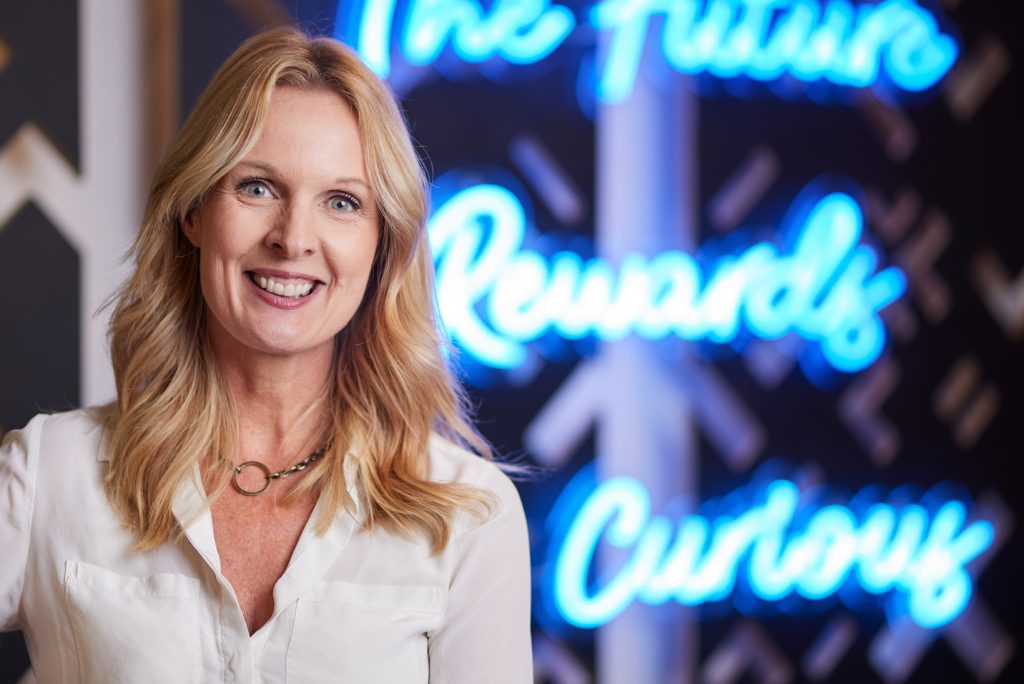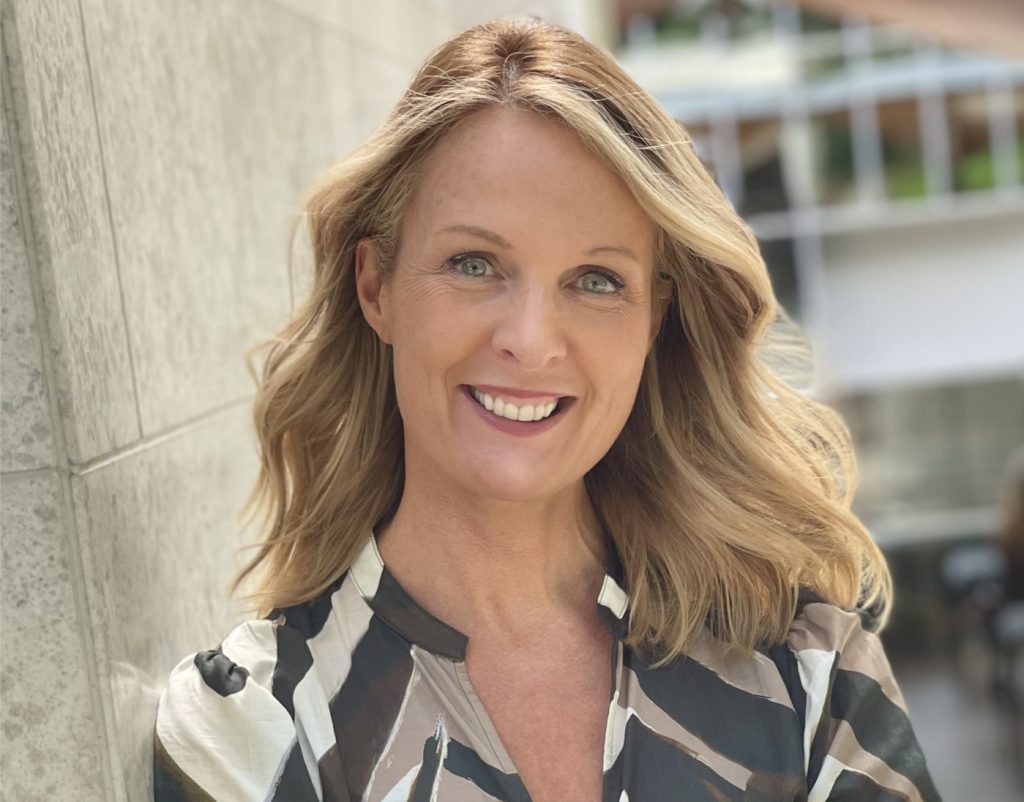June 13, 2023
You hold full responsibility for company success or failure but are unable to control most of the determining factors. You possess supreme authority but know that dire consequences will follow should too much control be wielded. You are always on show but rarely know what is truly going on under the covers.
You are a CEO – attempting to operate at the peak of your executive powers every minute of every day.
Amid such conflicting chaos, it’s no surprise that business leaders lack the energy and enthusiasm to commit to a career of continuous learning. But don’t be fooled, absenteeism on the education and personal development front isn’t because of busy schedules in New Zealand.
“That’s easy, fear of failure or fear of not getting it,” noted Frances Valintine, Founder and CEO of academyEX.

In pinpointing the single issue preventing the C-suite level from removing the shackles of legacy knowledge and superficial understanding, Valintine was quick to highlight the difference in approach based on gender.
“When you get male executives into a one-on-one conversation, there’s a lot of fear,” she explained. “These CEOs are highly successful in their day jobs but they are nervous beyond belief.
“The thought process is that, ‘if we’re good at what we do, then we don’t want to show any cracks in the armour or let others know that we have gaps’. And let’s not forget our tall poppy syndrome in New Zealand which doesn’t help the situation.”
On the flip side, continuous learning is a concept more aligned with how female leaders currently navigate their corporate careers.
Approximately 75% of all people studying at post-graduate level across the world are female with roughly 65% of women taking up under-graduate programs.
“There’s a renaissance of women coming through but this isn’t a deliberate feminist statement,” Valintine said.
“We know that women have always had to prove that they have the skills – we have all heard that many times – meaning they’ve always had a mentality of going out to learn and learn again.”
Despite differences based on gender, the collective issue still exists across the C-suite in New Zealand.
“There’s an obsession with learning when we’re young but when we reach 22, everyone thinks they’re pre-loaded and good to go for life,” Valintine added.
At certain career junctures, leaders are happy to undertake executive programs for a week or two at Harvard Business School or Stanford Graduate School of Business and pay $100,000 for the privilege.
Most extend to plastering such achievements on LinkedIn – some to demonstrate the importance of continuous learning and the insights accumulated, others to feed a #Humble #NotSoHumble social brag addiction.
“That’s fine,” Valintine accepted. “But when you actually want leaders to roll up their sleeves and get their head around stuff, the levers don’t exist to make that happen. A board isn’t going to ask the C-suite to commit to continuous learning.”
Legacy knowledge
According to PwC’s 26th Annual CEO Survey, 92% of CEOs in New Zealand are developing leadership and talent to drive workforce productivity during the next 12 months, with 86% committed to employee up-skilling. Yet nothing on executive development for the CEO as individuals.
“Lots of executives are running businesses with legacy knowledge and that’s a real concern because you change over time,” Valintine said. “The leader I was 10 years ago would not work today, it simply would not work.”
“When you get male executives into a one-on-one conversation, there’s a lot of fear”
Frances Valintine (academyEX)
Society changes and as executives age, they seldom realise that the perception of them changes in parallel.
“Just because you were a great leader at 35 doesn’t mean that someone is going to have the same opinions about you at 50 or 60,” Valintine warned. “And the number of people who are younger than you versus older than you changes – it’s important to remember that.”
Working on the assumption that most CEOs fail to refresh knowledge and weaken commitment to education over time, Valintine explained that a 50-year-old executive that hasn’t received any leadership training for 10 years is essentially behaving like a 40-year-old.
“But the world was different then,” she added. “We have new mental health challenges and anxiety at levels we haven’t seen before – people are worried about their jobs and even the extreme weather during the past few months. People are on edge.”
There’s still an element of uncertainty as New Zealand enters a period of post-pandemic recovery and society struggles to process inflationary and cost of living implications.
Leaders must not only be cognisant but empathetic of such concerns which is easy in theory yet difficult in practice.
“People need to know that you’re fazed by the same thing and you’re not immune to what people are fearful of today,” outlined Valintine, honoured as a Companion of the New Zealand Order of Merit (CNZM) for her lifetime contribution to education and technology in 2018. “Each individual now expects to have a greater say in what their future looks like.”
How effectively that squares with the stereotypical corporate leader is the million-dollar question – a beast of a CEO who is incredibly tough, thick skinned and determined beyond reason. Admirable attributes of course, but the day-to-day impact for all executives is an increased need for flexibility in approach.
“If you’re running a sizeable organisation, strike a balance between showing the North Star with direction and expectation but possess a huge amount of empathy for today’s current situation,” Valintine said.
The problem is, Kiwi CEOs no longer understand which leader they need to be on any given day due to the fluctuating nature of work.
“Your approach has to mirror who turns up to the office on that given day which can be hard,” Valintine noted. “Your difference in tone and experience is now determined by who shows up physically.”
Representing the most profound shift in executive and employee relations, Valintine said CEOs can no longer rely on consistency to guide the ship through stormy waters.
“Everyone followed 9-5 in the office, everyone knew what everyone else was doing and you’d throw in a couple of fun days here and there to help with team bonding,” Valintine recalled.
“That’s gone and today, 30-60% of staff may or may not be in the office on any given day so you have to ride with the waves a lot more. That requires a whole different type of leadership.”

For executives competing against enterprise-grade organisations or multi-national corporations in New Zealand, a change in leadership style can have a sizeable affect on talent retention and attraction.
Big brands can attract employees simply because people are lured by the appeal of working for a well-known company – there’s a huge amount of compulsion attached to a reputation and the money that naturally follows. In those instances, it’s less about the leader and more about the logo.
“But if you’re not one of those big brands, they have to be attracted to you,” Valintine stressed. “If you want to lead a progressive company and move from start and scale up to great success, then you have to become a different type of leader.”
Superficial knowledge
As a passionate educator and technologist, Valintine speaks with authority when challenging the traditional education structure in New Zealand.
In 2013, the Auckland-based CEO founded The Mind Lab to empower students and educators to develop applied digital knowledge and capability. Other faculties under the academyEX banner include Tech Futures Lab and Earth Futures Lab.
Focusing on post-graduate professionals of a part-time nature – the average student age enrolled at academyEX is 44, spanning all industry sectors in New Zealand.
Within that context, the aim is to provide professional development and knowledge in the fields of technological advancement, education, sustainability and leadership.
“People arrive at a time and place in their career when they just don’t understand what’s going on beyond a superficial level of technology,” Valintine shared. “They are tasked with running large projects, tackling complex integrations and making technology considerations and they ask, what is this?
“What does it look like for a grown-up to return to study in New Zealand? What do professionals do when they’ve already completed their studies?”
The answers are depressing, according to Valintine. New Zealand has one of the lowest participation in professional development in the Organisation for Economic Cooperation and Development (OECD) and only five per cent of Kiwis have a Masters degree.
“On-going learning is also low which means we have a massive reliance on international talent to fill our leadership positions,” Valintine added. “Every leader today requires a solid understanding of technology, whether that is data, cloud, software or now generative AI.
“On top of that, you have to think about your customers and everything else that comes with the job.”
“Just because you were a great leader at 35 doesn’t mean that someone is going to have the same opinions about you at 50 or 60”
Frances Valintine (academyEX)
In scanning the top 200 CEOs in New Zealand, Valintine acknowledged that most are immigrants who possess deep levels of experience and specialised skills from offshore.
“Our C-suite is full of Brits, Australians and Americans,” she said.
In declaring that the country doesn’t have enough strong local performers at the top end of town, Valintine accepted that any standout Kiwi talent flies the nest and cuts their teeth overseas. They don’t always come back but if they do, they normally excel.
“If you walk through the office doors of Microsoft, Amazon Web Services or Salesforce in New Zealand, they are just packed with amazing and talented international staff,” Valintine observed.
“But we can’t rely on international talent because the same people are touted by all markets. We can’t match salaries in Sydney, Los Angeles, New York or London so we have to create leaders who are homegrown and outwardly looking.”
Progress beyond psyche
While accepting continuous learning progress can be stifled by executives climbing the ladder and pulling up the lever behind them – “competitive and passive aggressive behaviour does happen in this country” – Valintine suggested the issue is more deep-rooted.
Ingrained into the fabric of the nation, to be specific.
Referencing the common “small nation with five million people at the bottom of the earth” mentality, Valintine challenged that geography and demography definitions are holding back executive development at the C-suite level.
“It’s almost like that defines us to the point that we don’t need to think about market changes and implications,” she said. “But what worries me is if we miss the boat because there is no way we can suddenly catch-up – there’s no jet propulsion capable of putting us back on level terms.
“We are in the habit of saying, ‘that could be inserting and that could be interesting’ but never connecting the dots. Then it’s a case of, ‘oh, we kind of missed that one’ and the cycle continues.”
For Valintine, the biggest benefit attached to the Kiwi brand on the world stage is trust – an attribute which carries even greater currency when tackling technologies such as AI, cloud, cyber security and data sovereignty.
“Cohesively as a country, this is a good space to play in but we must do better as positioning ourselves strongly to truly shift the dial,” she advised.
Inform your opinion with executive guidance, in-depth analysis and business commentary.